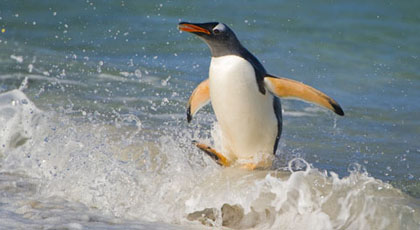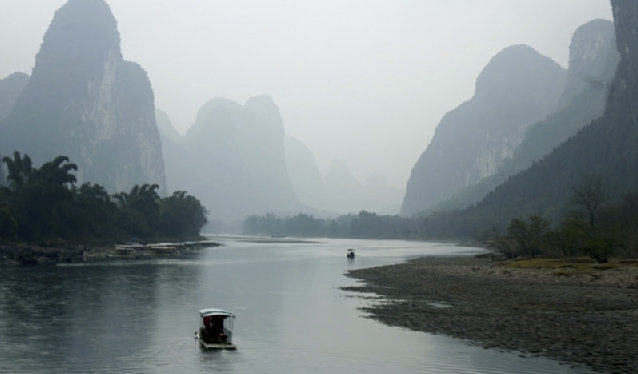Page 20 • (1,427 results in 0.045 seconds)
-

so full of history and facts and fun, we wanted to share it with everyone. Writes Lorna: “Now at 93 years old, this trip remains very vivid in my memory!” By Lorna Vosburg Burt ’40, ’69 “Whee…eee!,” I read in my diary. “We are off on the trip of a lifetime!” I was just 19 years old, a student at Pacific Lutheran College and a member of the famous Choir of the West, which was leaving on a 3,000-mile tour of the Pacific Coast, including daily concerts at the 1939 World’s Fair in San Francisco. We
-
us. Boeing has shaped the course of human history through aerospace innovations. Today, because of our amazing people and powerful technologies, our products connect the globe, protect freedom, and advance scientific discovery around the world. From the depths of the ocean, to Mars and beyond, we’re inspiring the next century of explorers – we invite you to join us on the journey ahead! As an intern at Boeing, you’ll gain hands-on experience, learn from experts, and collaborate with teams that do
-
us. Boeing has shaped the course of human history through aerospace innovations. Today, because of our amazing people and powerful technologies, our products connect the globe, protect freedom, and advance scientific discovery around the world. From the depths of the ocean, to Mars and beyond, we’re inspiring the next century of explorers – we invite you to join us on the journey ahead! As an intern at Boeing, you’ll gain hands-on experience, learn from experts, and collaborate with teams that do
-

a Ph.D. in history from the University of Washington and he now serves as the Benson Family Chair in Business and Economic History at PLU.Halvorson co-founded the innovation studies program and minor in 2016 and currently serves as the program director. Innovation is his passion, but Halvorson’s extensive knowledge of history fortifies his perspective. “In our program we look at the long history of innovation, how people have created new things, and what the positive and negative consequences of
-
. INTRODUCTION It is my honor and privilege this morning is to report to you for the 19th time on the “State of the University.” I have titled this report “A Year of Achievement — A Decade of Change” and my central thesis is that the university is strong and stable. We continue to perform with excellence and distinction in a time of real challenge and, I believe, we have the resolve and the resources to engage this new year, and the decade before us, with well-founded assurance and confidence. My exposition
-

the NCAA Championships. Luksich holds the 19th best vault in Division III this season, clearing a school record 12 feet, 4 inches, at the PLU Invitational while Nguyen is 22nd in the nation, having cleared 12′ 2 ½” yesterday afternoon at the GFU Final Qualifier. Luksich and Nguyen are the first Lutes to compete, vaulting at 9:30 a.m. (Pacific) on Thursday. Darius Chaffin is the fourth Lute making their nationals debut, heading to Ohio in the javelin. The first-year owns the 10th best throw in the
-

10,000 strong. Bergman will be writing about penguins and their relationship with humans for the Smithsonian article. “Everyone loves penguins. I don’t think you could find someone who doesn’t,” he said. “They are the most anthropomorphized bird in the world.” It’s almost impossible not to interpret what they do, from courtship to preening, in human terms, he said. Their charm is further enhanced by the birds absolute acceptance of humans in their world. While it was almost their downfall in the 19th
-

are extra exciting to you? I am an absolute sucker for student newspapers, and The Mast is no exception. I could spend an absurd amount of time going into the reasons why, but it ultimately comes down to the fact that they are, without a doubt, one of the most useful resources at our disposal when trying to research anything related to PLU’s history. After all, the paper doesn’t just tell us when things happened at PLU, but also how the community responded. Their pages contain lost traditions
-
, adolescence, family relationships, illness, death, and much more in a way informed by an understanding of a wide range of human stories. Not just by aggregate data.” (Nussbaum, 26) Studying in the Humanities, then, means seeing the world authentically. It means trying to understand the richness of human experience, to trace its history, to value its variability. The humanities prompt us to ask who we are and how we came to be this way. They ask us to reflect, to understand, to see knowledge as a process
-

with this experienced, but they weren’t interested. It was routine for them. It was then that I understood that water and the form it takes in all societies represents normality, and therefore not considered important for reflections on society or human history. At the same time I was studying the history of the Nile. Since then I’ve been interested in water and society. Q: You deal with society and water in your documentary “Future of Water.” How long did it take to shoot and what can you tell us
Do you have any feedback for us? If so, feel free to use our Feedback Form.


